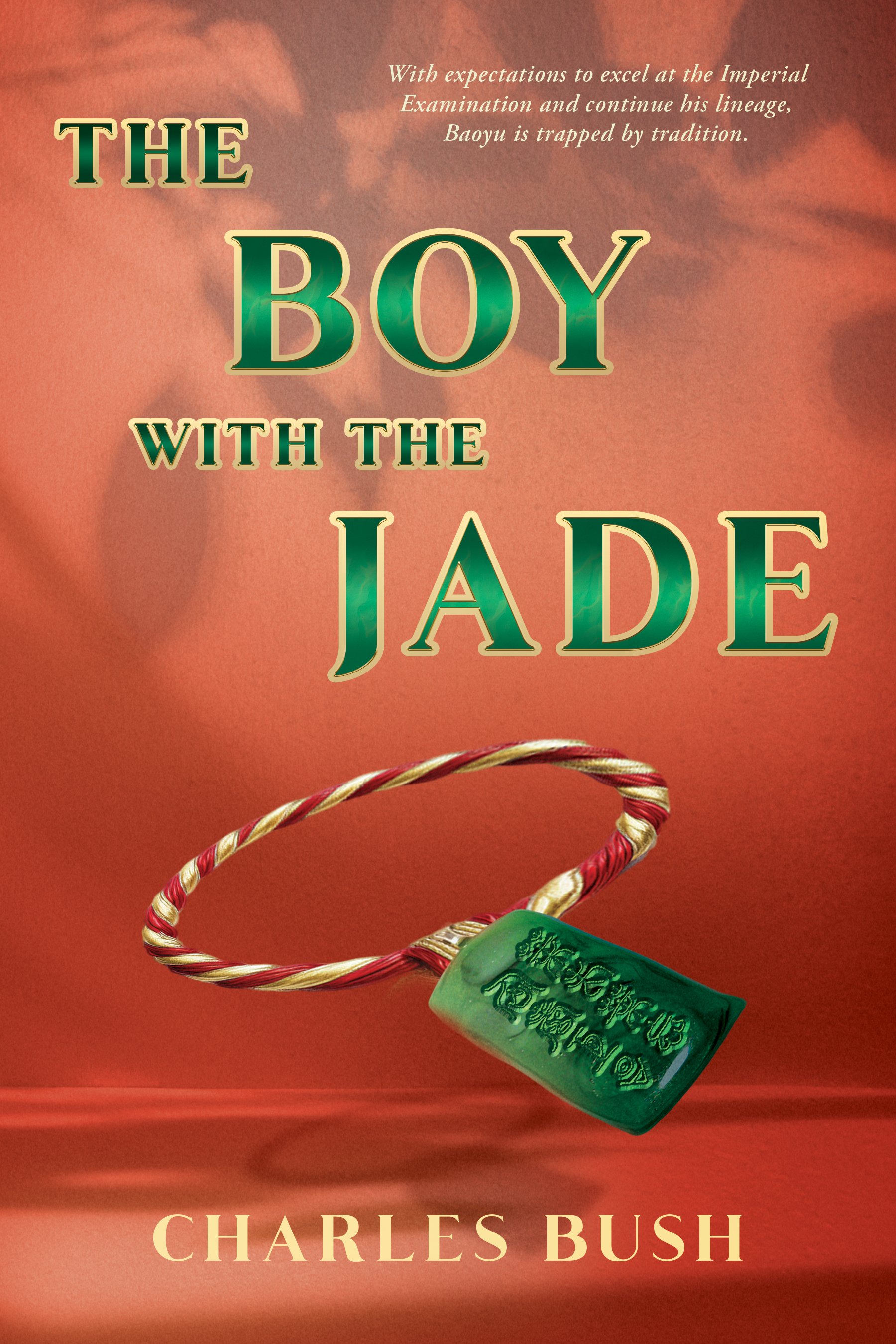Why I Wrote a Historical Novel Set in China
By Charles Bush, Author of The Boy with the Jade
I’m a white American male, born and raised in the Midwest. I never ate in a Chinese restaurant until I was in college, never had a friend of Chinese-ancestry until I was in my late twenties. How, then, did I come to write a historical novel set in eighteenth-century China?
The answer starts with the fact that, for many decades, I’ve been partnered with a Chinese-American man, Calvin Lau. (We were legally married in 2013.) In the 1990s, he embarked on a personal journey to read what are considered the six classic Chinese novels. These are:
The Romance of the Three Kingdoms
The Water Margin
Journey to the West
Jin Ping Mei (The Golden Lotus)
The Scholars
Hong Lou Meng (Dream of the Red Chamber)
Initially, I wasn’t interested in joining him, but after several months of hearing him talk about how much he was enjoying his project, I decided to read the six too.
I found all the novels interesting but was absolutely smitten with Hong Lou Meng. I found many of the characters fascinating, especially the novel’s boy protagonist⎯sensitive, thoughtful, complex Baoyu. Hong Lou Meng also offers a rare insider’s view of daily life in an aristocratic household in eighteen-century China.
At the same time, looked at simply as a novel, Hong Lou Meng is a monumental jumble. It’s absurdly long⎯in English translation, 1,800 to 2,500 pages. It is said to have 30 major and 400 minor characters. Characters disappear for long stretches. Important turning points are rushed through in a page or two, while endless pages depict characters sitting around telling jokes or reciting their own poetry. Contradictions in plot, character, and setting abound.
One critic writes:
The Chinese novelist seldom feels the challenge to concentrate on one major episode until all its potential meanings have become dramatized. Instead, he crowds his pages with scores of characters, some only names, and piles incident upon incident, climax upon climax.
I ended up reading several different translations of Hong Lou Meng (published, confusingly, under several different English titles). All the time I kept thinking: this novel tells compelling, moving stories, but they certainly are badly told.
Meanwhile, I had been writing fiction for more than ten years, was a member of an excellent writing group, and had already published one novel. While I didn’t consider myself a great novelist, I was familiar with the techniques of contemporary fiction writing and knew how to use them.
I realized I could isolate the single most important of the many plot threads running through Hong Lou Meng⎯the one tracing the childhood and youth of Baoyu⎯and, using the craft skills I had acquired, write a novel that would appeal to the contemporary reader. I could deepen the major episodes, eliminate the extraneous characters, and tell Baoyu’s fascinating and moving story in a way that would do it justice.
With that insight, I set to work, and that’s how this white boy from the American Midwest ended up writing a historical novel set in eighteenth-century China.
About the Author
Charles Bush, a former attorney turned novelist, hails from Kansas City, Missouri. He holds history degrees from Harvard College and the University of California, Berkeley. However, due to a challenging job market for historians, Charles pursued a law degree at the University of Chicago. After a successful legal career, he began transitioning to writing fiction in the early 2000s.
His legal background inspired his first two novels. What Went Wrong with Oscar Toll? tells the story of a San Francisco attorney striving to save a mentally challenged man from death row. Houseboat Wars explores the unique houseboat communities of 1970s Sausalito, where legal battles and personal dramas unfold
In the opulent world of 18th-century China, where wealth and power reign supreme, The Boy with the Jade unveils the poignant tale of Baoyu, heir to the illustrious Jia family. Born with a jade pendant in his mouth—a symbol of his destiny—Baoyu's life is one of luxury laced with darkness.
“A deep dive into the head of one of the most iconic characters in Chinese fiction… A compelling interior focus on Baoyu’s journey, it offers a fascinating window into 18th-century Chinese high society.”
– Laurie Dennis, Author of The Lacquered Talisman
“A powerful, fresh take on Dream of the Red Mansions, filled with psychological drama and the vivid splendor of the Qing Dynasty's golden age.”
– Larry Feign, Author of The Flower Boat Girl


